“Aaaah”-vocado Goodness in Miami
Tuesday, 30 July 2013 19:23
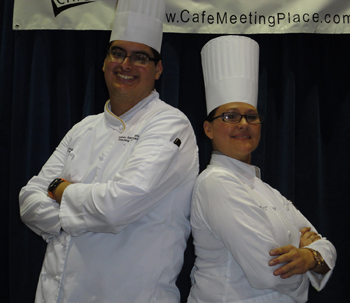 Two students’ winning dishes featuring Mexican avocado were enjoyed by attendees of CAFÉ’s 9th-annual Leadership Conference.
Two students’ winning dishes featuring Mexican avocado were enjoyed by attendees of CAFÉ’s 9th-annual Leadership Conference.
Mexico is the leading source of fresh avocados in the United States. To celebrate the versatility and goodness of Mexican avocados in foodservice, Avocados From Mexico (AFM) hosted a recipe competition among students enrolled in the two schools that served as sites for CAFÉ’s 2013 Leadership Conference in Miami, Fla., in June: Johnson & Wales University, N. Miami campus, and Miami Culinary Institute at Miami Dade College.
Dilia Capuzzo, representing Miami Culinary Institute, won with her Avocado Crème Brûlée. Her goal was to create something tropical, summery and cool to say “Miami.”
Ruben Santa-Robles, representing Johnson & Wales University, wowed judges with his Mediterranean Avocado Flatbread, which paired creamy avocado with the complementary tastes of salt from prosciutto and brine from capers.
Both dishes were served at the welcome reception on June 20, eliciting delight from conference guests. (Recipes with accompanying photos may be downloaded using the links below.)
AFM is a wholly owned subsidiary of the Mexican Hass Avocado Importers Association (MHAIA), formed for the purpose of advertising, promotion, public relations and research for all stakeholders of avocados from Mexico. Under agreements, MHAIA and the Mexican Avocado Producers & Packers (APEAM A.C.) have combined resources to fund and manage AFM, with the intent to provide a focused, highly effective and efficient marketing program in the United States. AFM is headquartered in Denver.
Photo:Students Dilia Capuzzo from Miami Culinary Institute and Ruben Santa-Robles from Johnson & Wales University won the recipe contest sponsored by Avocados From Mexico at CAFÉ’s 9th-annual Leadership Conference in Miami, Fla., June 20-22.
DOWNLOAD, Avocado Crème Brûlée
DOWNLOAD, Mediterranean Avocado Flatbread

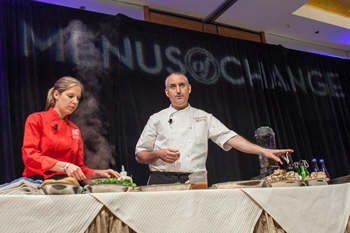 At the inaugural Menus of Change™ summit co-presented by the CIA in June, experts in foodservice, health science and social change presented information on topics relevant to what today’s health- and environmentally conscious consumers expect from corporations, foodservice operators and business leaders.
At the inaugural Menus of Change™ summit co-presented by the CIA in June, experts in foodservice, health science and social change presented information on topics relevant to what today’s health- and environmentally conscious consumers expect from corporations, foodservice operators and business leaders.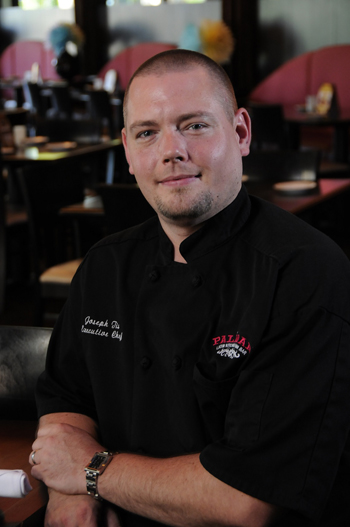 Paladar Latin Kitchen & Rum Bar honors the diversity of South and Central America and the Caribbean by representing several regions on the menu, overseen by executive chef Joseph Tis. Although applications and flavors are authentic, the menu must have broad appeal. After all, just what does Latin food really mean?
Paladar Latin Kitchen & Rum Bar honors the diversity of South and Central America and the Caribbean by representing several regions on the menu, overseen by executive chef Joseph Tis. Although applications and flavors are authentic, the menu must have broad appeal. After all, just what does Latin food really mean? Recognizing and respecting differences among people is characteristic of our industry, and a reality in most workplaces. In the classroom, honoring differences also creates a positive environment where everyone is welcome and feels safe and included.
Recognizing and respecting differences among people is characteristic of our industry, and a reality in most workplaces. In the classroom, honoring differences also creates a positive environment where everyone is welcome and feels safe and included.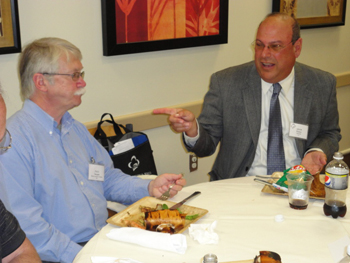 From opening and staring into a hot oven until the inside temperature plummets to reasons not to overcrowd a frying pan, Chef Weiner discusses how to successfully teach some hard-to-learn rules in the culinary classroom. For one common practice among students, however, he still seeks a solution.
From opening and staring into a hot oven until the inside temperature plummets to reasons not to overcrowd a frying pan, Chef Weiner discusses how to successfully teach some hard-to-learn rules in the culinary classroom. For one common practice among students, however, he still seeks a solution.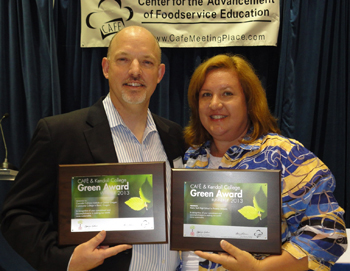 A collegiate culinary-arts program in central Oregon and a high school in Phoenix earn top honors for exemplary practices in—and innovative teaching of—ecological sustainability.
A collegiate culinary-arts program in central Oregon and a high school in Phoenix earn top honors for exemplary practices in—and innovative teaching of—ecological sustainability. Courtesy of the Idaho Potato Commission
Courtesy of the Idaho Potato Commission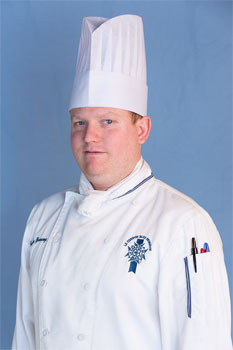 At its 13th-annual Educator of the Year Awards, Career Education Corporation (CEC) (NASDAQ: CECO) honored some of the finest instructors among its more than 6,000 faculty members nationwide for their dedication to student success.
At its 13th-annual Educator of the Year Awards, Career Education Corporation (CEC) (NASDAQ: CECO) honored some of the finest instructors among its more than 6,000 faculty members nationwide for their dedication to student success.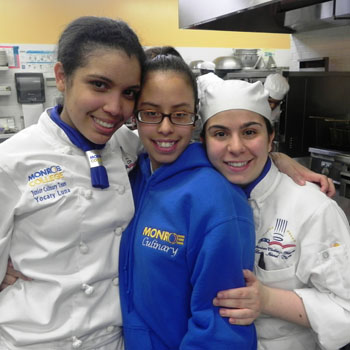 On May 11, more than 40 students and professional chefs converged on the New Rochelle Campus to compete in the Greater New York Culinary Challenge (GNYCC) at the Culinary Arts Center. Besides medals awarded at this competition, there was another award at stake: The Dean’s Cup. This award, given by Dean Frank C. Costantino to the outstanding student culinarian, was on the line for 10 of Monroe's most accomplished young culinary competitors.
On May 11, more than 40 students and professional chefs converged on the New Rochelle Campus to compete in the Greater New York Culinary Challenge (GNYCC) at the Culinary Arts Center. Besides medals awarded at this competition, there was another award at stake: The Dean’s Cup. This award, given by Dean Frank C. Costantino to the outstanding student culinarian, was on the line for 10 of Monroe's most accomplished young culinary competitors. The Chicago Chapter of Les Dames d’Escoffier International (LDEI) recently awarded scholarships totaling $22,500 to female students enrolled in professional culinary- and baking/pastry-arts programs throughout greater Chicago.
The Chicago Chapter of Les Dames d’Escoffier International (LDEI) recently awarded scholarships totaling $22,500 to female students enrolled in professional culinary- and baking/pastry-arts programs throughout greater Chicago.